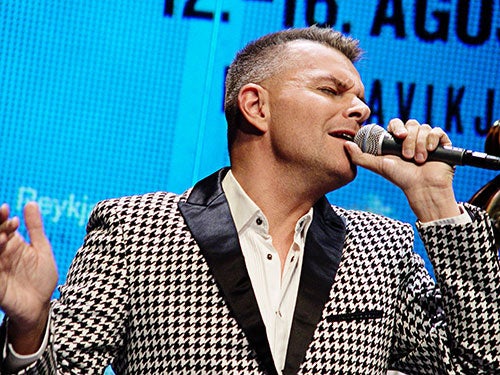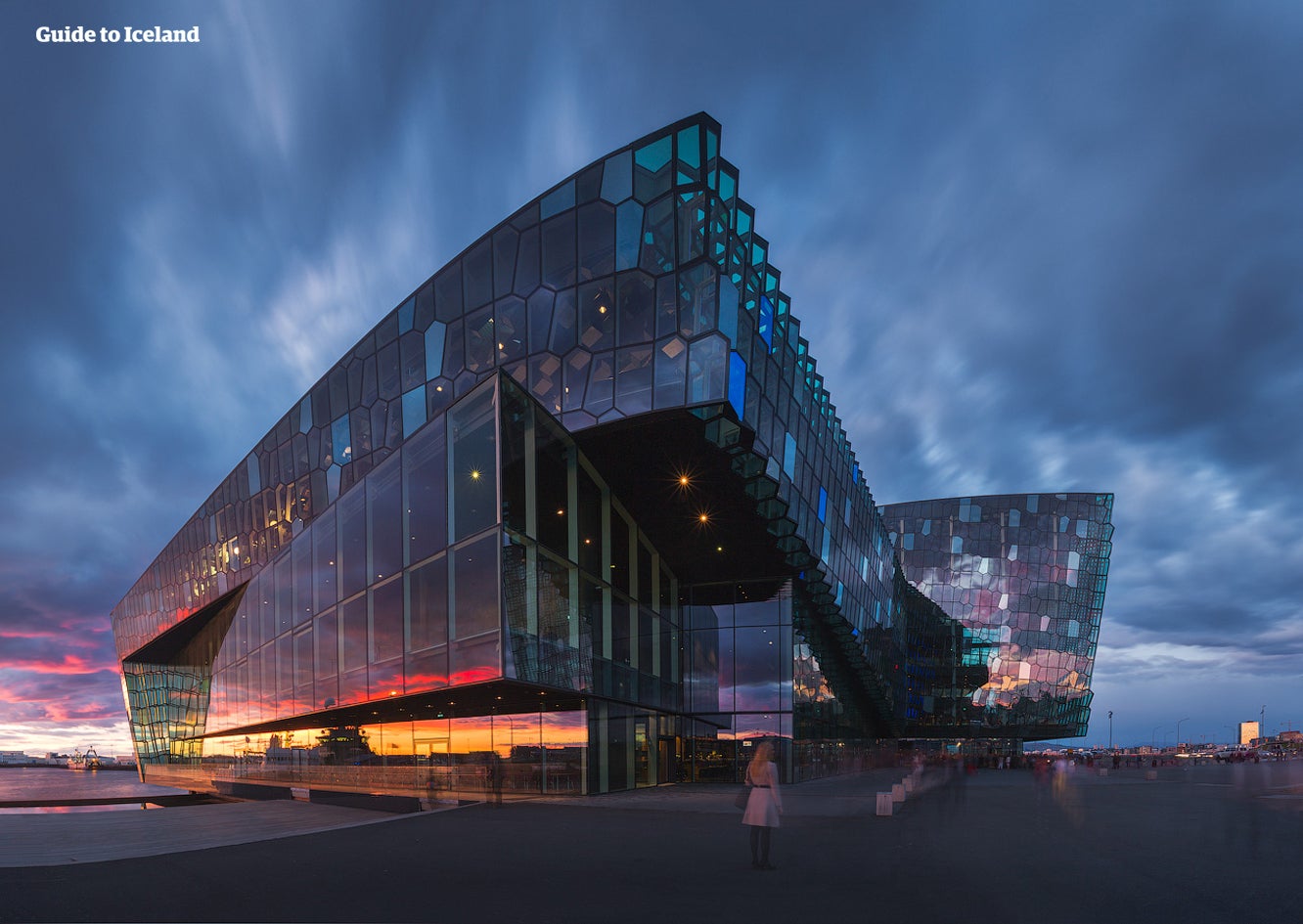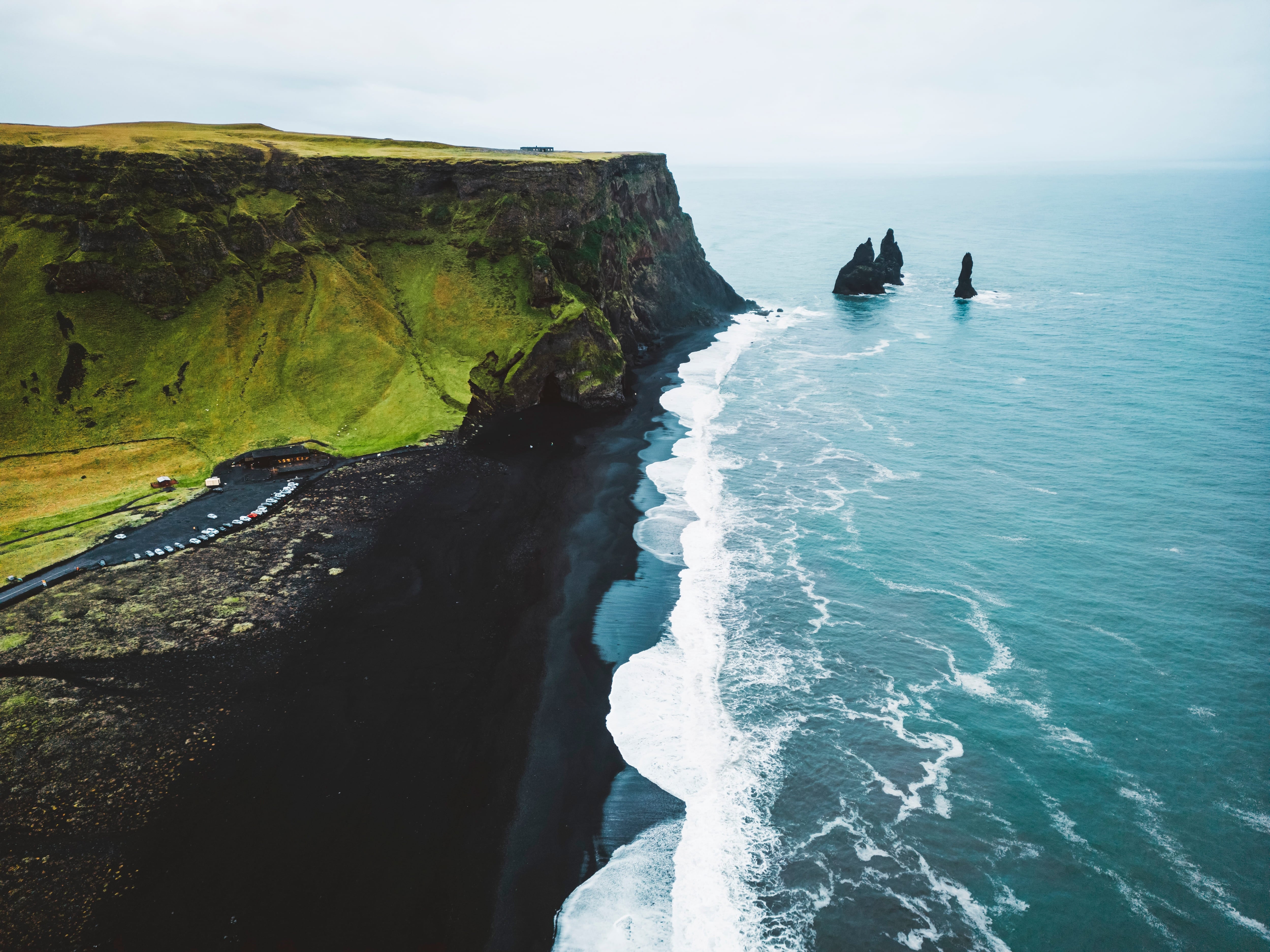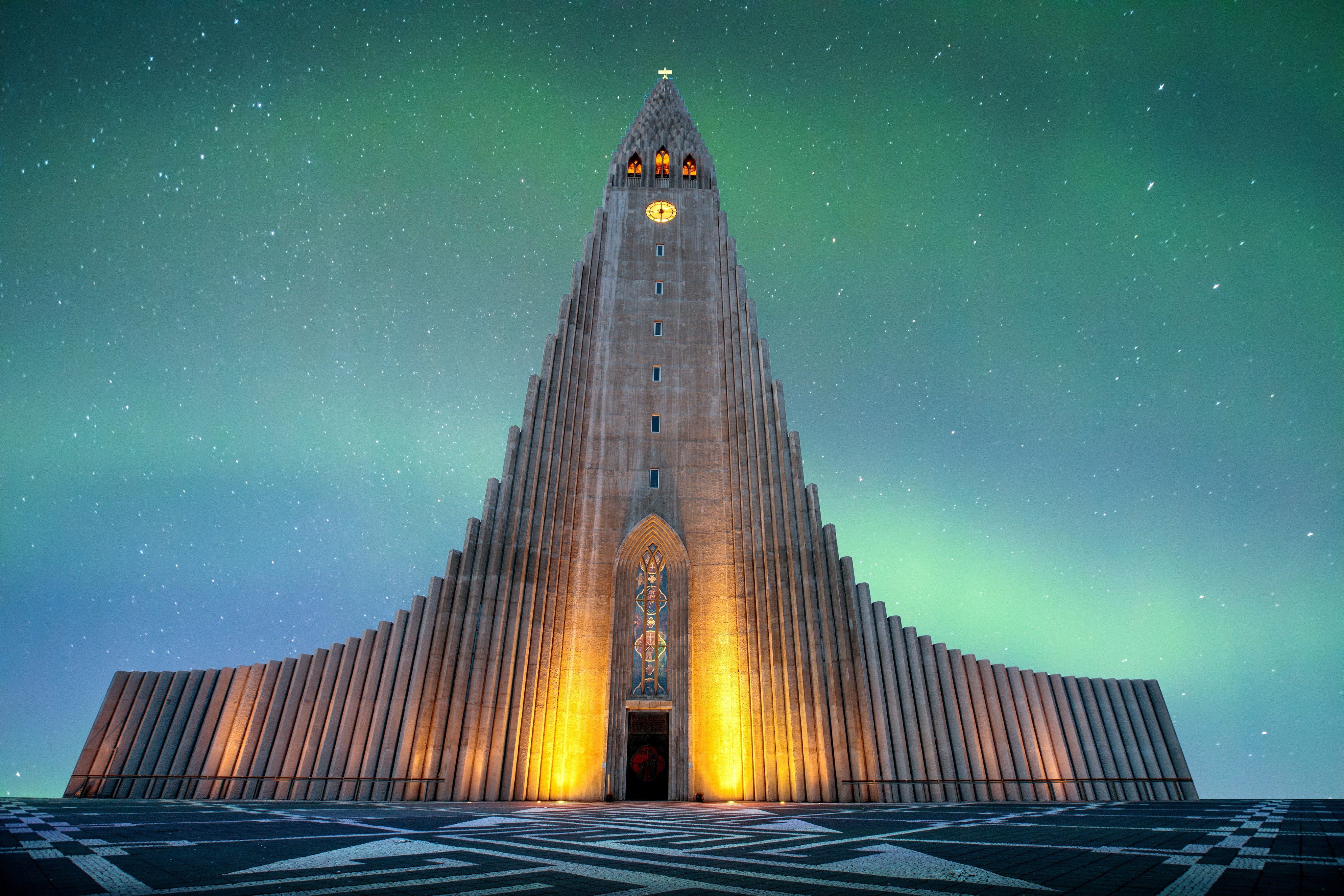Who is Páll Óskar? Why is Páll Óskar considered the King of Icelandic Pop? Where can you see him perform today? Read on to discover all about one of the biggest figures on Iceland's musical and cultural scenes.
- See the sights of Reykjavik with this Hop On - Hop Off City Sightseeing Tour
- Soak up the brews of Iceland with a Reykjavík City Beer Tour
- Taste the city with the Reykjavik Food Walk
- Discover local watering holes in the Reykjavík Bar Crawl
- Unique luxury in the North - enjoy the Beer Spa from Akureyri
- See also: Music of Iceland
Since his first solo album Stuð ("Groove") in 1993, Páll Óskar has made enormous waves on the Icelandic music scene. As a flamboyant, theatrical, openly gay man, his outrageous fashion and charm have been as much of a subject to the nation as his incredible vocals and unquestionable creativity.
Why You Can Trust Our Content
Guide to Iceland is the most trusted travel platform in Iceland, helping millions of visitors each year. All our content is written and reviewed by local experts who are deeply familiar with Iceland. You can count on us for accurate, up-to-date, and trustworthy travel advice.
Rising in the musical scene in spite of the odds, he is now a household name and one of the country's most loved public figures.

In spite of nearly three decades of changes to music, style and culture, he has managed to stay relevant, surprising, and respected. The only Icelandic artist who can truly say they share his talent for reinvention and lasting presence is Björk.
Ask any Icelander the same question, and they will have a different answer as to their favourite Páll Óskar moment or performance. Some might refer to his 2011 Christmas Eve performance at the Fríkirkjan Church in downtown Reykjavik; others may remember his extravagant displays at Reykjavík Pride.
Many, of course, would point to his erotic Eurovision Song Contest performance in 1997 that generated huge controversy across the continent at the time, while garnering him an international fan base.
- See Also: Iceland's Eurovision Song Contest History.
The main reason for Páll Óskar's appeal amongst such a diverse group of fans is the fact that his performance style varies so dramatically.
While in some moments, he may be surrounded by latex unicorns dancing to electro-pop beats, he is just as likely to be found humbly dressed singing a traditional Icelandic ballad; you may see him quietly in a DJ booth, bringing a night out to life, or else entertaining the 20,000 who come to the Þjóðhátíð music festival in the Westman Islands every year.
His sincerity is as authentic as his sense of fun, and thus Icelanders of all backgrounds find something in him to relate to.

Of course, however, it must be said that he has a special place in the heart of his LGBTQ+ audience. In the early 1990s, like in the rest of Europe, it was a much more difficult time to be openly gay in Iceland, let alone proudly so. He was thus one of the first media figures to provide a role model to a more persecuted generation who were fearful of being fabulous.
He is still heavily invested in the community and is beloved across it. He organises regular events to help keep life pumping in Iceland's queer scene and is a main feature most years at Reykjavík Pride, often closing the day with a joyful mass singalong of Ég er eins og ég er.
- See also: Gay Iceland | All You Need to Know.
Since 1993, Páll Óskar has gone through many transformations, performed in many styles, and appeared in as many outrageous costumes as Cher, Madonna and Gaga put together. Below are just a few select examples that show why he is such a cultural icon and Iceland's undisputed King of Pop.
Where to see Páll Óskar live
As of 2025, you’ll most often find Páll Óskar headlining Reykjavík Pride in August, lighting up Þjóðhátíð in the Westman Islands, bringing the party to city festivals such as Ljósanótt in Reykjanesbaer, and popping up at club nights around Reykjavik. He also appears at special concerts across the country, from grand stages to intimate halls. For current dates, check local ticketing platforms and venue listings in Reykjavik and beyond.
Reykjavík Pride 2011: Ég er eins og ég er (I Am What I Am)
Páll Óskar's Icelandic cover of Gloria Gaynor's eternal anthem I Am What I Am has come to define the annual August Pride festivals in Reykjavík; they feel incomplete without one of his heartfelt renditions. Taking a song with such history and power and making it your own is no mean feat, but ask most Icelanders which version they prefer, and many will name Páll's.
Though not one of his originals, many who know little of Páll Óskar's wider portfolio still associate him with this classic number. Above you can see him sing it on stage inside Harpa Concert Hall with the Iceland Symphony Orchestra.
- See also: Iceland in August.
1996: Stanslaust stuð (Non-Stop Party)
The mid-90s were the years where Páll Óskar soared to stardom, and his 1996 album Seif helped establish an outrageous, sexualised and unconventional image that would propel him into Eurovision the following year. While clearly very nineties, Páll was doing something in Iceland that no one else was thinking of and no one else could compare with.
The music from his early career has not lost an iota of popularity. Songs such as Stanslaust stuð are still played in bars and on dancefloors across Iceland today.
- See also: Nightlife in Reykjavik
2007: Allt fyrir ástina (All for Love)
Allt fyrir ástina is one of Páll Óskar's most popular YouTube videos and encapsulates his style perhaps better than any other. The polished visuals, the seriousness of the lyrics and the cleanness of the choreography all point to an artist who takes serious professional pride in his work, while the campy costumes, bright colours and pop tunes stay true to Páll's roots in the 1990s and Eurovision Song Contest.
- See also: Famous People from Iceland.
1995: Anyone Who Had a Heart
As mentioned above, Páll Óskar is anything but one note. Throughout his career, many of his numbers have proved that he does not need to sing in Icelandic, dress extravagantly, or rely on special effects or backup dancers to sell a beautiful number and deliver an excellent performance.
1995's Anyone Who Had a Heart proves he is a diverse artist and justifies his wide fan base.
1996: Páll Óskar as Björk
While his songs and style explain why Páll has had such an impact on music and fashion in Iceland, his fun-loving character and intimate awareness of pop culture explain why Páll has lasted so long in the national consciousness, and why he is so well-liked across the country.
Through dabbling in drag, having a perfect knowledge of his references, and using his great comedic timing, he has pulled off bizarre and brilliant impersonations that have ensured he has never gone stale in the public eye.
2015: Páll Óskar explaining homosexuality on a kids’ TV show
Páll Óskar is one of Iceland’s best-known openly gay public figures and is especially popular amongst young kids. So when the kids’ TV show Stundin okkar wanted to address homosexuality in one of their episodes, it made perfect sense to get Páll Óskar to play the leading role (against another well-known actress, Nína Dögg Filippusdóttir).
Above you can see a short and simple sketch aired on Icelandic TV in October 2015, with English subtitles, that quickly went viral and was celebrated by LGBTQ+ communities around the world. In it, Páll Óskar has the simplest explanation for different sexualities: “You don’t decide what makes your heart beat, it just beats.”
- See Also: Gender Equality in Iceland.
2018: Páll Óskar in The Rocky Horror Picture Show
When Reykjavík City Theatre decided to stage the classic The Rocky Horror Picture Show in 2018, there was no better fit for the role of Frank’N’Furter than Páll Óskar.
This was not a role that he was unfamiliar with, as he also played Frank’N’Furter 27 years earlier, in 1991, then a high school production.
The high school production was very successful, with 30 sold-out shows, and catapulted Páll Óskar's adult career. Up until that point he had been somewhat of a child star, but this role helped him blossom into the star that he is today. The highly successful 2018 production at the City Theatre won over a new generation of admirers for this versatile performer.
Even if many of these acts, particularly outside the context in which they were performed, border on being extremely unusual, one thing about Páll Óskar's performances cannot be denied: the man is an entertainer.
Have you seen Páll Óskar perform live? What is your favourite Páll Óskar moment? Tell us in the comments.













